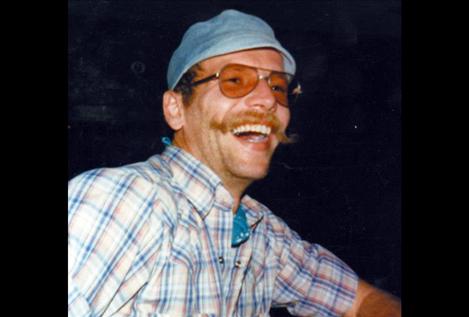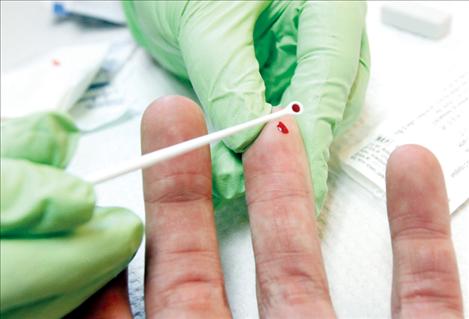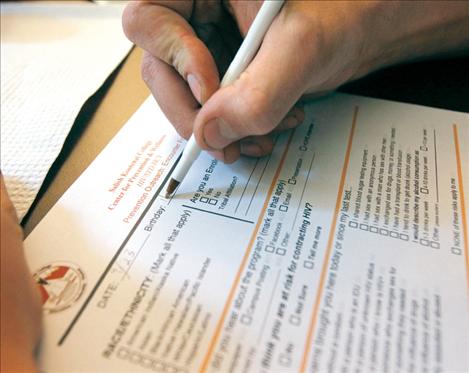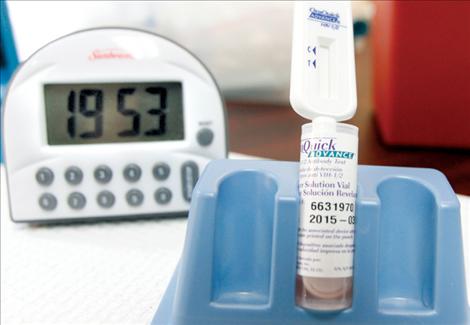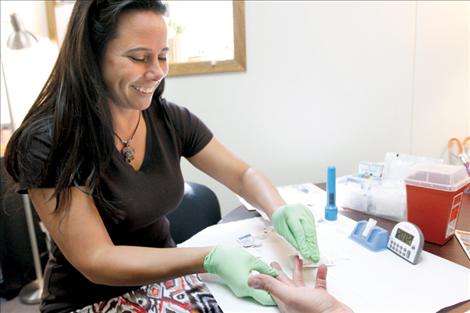Local man remembered for AIDS prevention work
Hey savvy news reader! Thanks for choosing local.
You are now reading
2 of 3 free articles.
MISSION VALLEY — For many years, human immunodeficiency virus (HIV) was something to be terrified of, but not something to talk about. Tom Freeman changed all of that on the Flathead Indian Reservation, and probably saved many lives in the process.
According to the Center for Disease Control, HIV can lead to acquired immunodeficiency syndrome (AIDS) and the human body cannot kill the virus. Once infected with HIV/AIDS, an individual is afflicted for life. There is no known safe or effective cure.
According to the CDC, “Scientists identified a type of chimpanzee in West Africa as the source of HIV infection in humans. They believe that the chimpanzee version of (HIV) most likely was transmitted to humans and mutated in HIV when humans hunted these chimpanzees for meat and came into contact with their infected blood. Studies show that HIV may have jumped from apes to humans as far back as the late 1800s. Over decades, the virus slowly spread across Africa and later into other parts of the world. We know that the virus has existed in the United States since at least the mid to late 1970s.”
Freeman contracted HIV in the late 1980s on the Flathead Indian Reservation.
“Tom did a lot of presentations for us,” said Niki Graham, director of Salish Kootenai College’s Center of Prevention and Wellness. “He was probably one of the first HIV-positives in this area to come out and say, ‘Yes, HIV is here. I was infected, here, in the Mission Valley.’ He did a lot of school presentations from Missoula to Kalispell, and his presentations always contained information about the disease itself. He made sure to address many of the myths out there.
“I think Tom was one of the strongest people I knew to come out and say what he did. Not too many people would do that in a time when everyone was deathly afraid of it.”
At the time Freeman was infected, medical science was not what it is today. Those infected with HIV had to take a spectrum of medication every two hours, “and if you missed a treatment, you were in trouble,” Graham said.
Freeman lost many friends to the disease, but continued, informing the public about dangers, risks and prevention while battling HIV himself for more than 20 years.
Freeman passed away in his home March 19 at the age of 58, with his daughter, Margo Tryon, by his side.
“He wanted to stay home and not die alone, and we accomplished that. It was a big thing for us both,” Tryon said. “He tried to die three times in the past 10 years, but there was a fighting spirit ... his will to survive was incredible. Even when he was really weak and unconscious, you could just see that he was coming back. Incredibly strong.”
And while Freeman’s fight is over, his legacy and the legacy of his work lives on.
Sherry Clark, a registered nurse at the Lake County Health Department, lost her best friend to AIDS in 1991. Shortly after, she started doing education and outreach about the virus within the local community. This was how she met Freeman, who befriended Clark’s sick friend, Kenny Evans.
Freeman would come over almost every day to make sure Evans had a friend to talk to and eat lunch with — someone to keep him company. After lunch, when Evans needed a day off from his job as a dairy farmer, Freeman would go into the field and milk cows.
“It was incredible that Tom would do that,” Clark said. “He never asked for gas money, and the effort of coming out of the mountains every day was a big effort ... I thought about that later, how hard it would be to see someone in the later stages of AIDS, and know that you had it too, but still be there for them as a friend.
“I can’t say enough good things about Tom. He was always very outspoken, yet he went about his work in a quiet way. Over the years, he lost a lot of friends to AIDS and he was always there helping out, so I can’t say enough good things about him.”
And on top of all of that, Freeman found time to educate the community about the disease.
“I guess I would say he was a crusader, to let people know that it was here,” Graham said. “He really felt it was something that people needed to know and not be oblivious to the fact that it was in our
valley, not just something that happens in the big city. He was very passionate about getting the word out, and he wasn’t afraid. That’s what I appreciated most about him — a complete, open, honestness that he was willing to share with anybody.”
HIV has been on the Flathead Reservation for some time, but many still do not understand the disease.
Graham said on one occasion, Tom was scheduled to speak at an event and was sitting in the audience when she introduced him. An elder was seated next to him and, as he stood, she realized he was HIV-positive.
“When I came in the next day, (the elder) was sitting in the stairwell, crying, waiting for us to come into work,” Graham said. “I don’t know what time she showed up — I showed up at 8 a.m. and she was sitting on the stairs waiting for me — and I recognized her because I saw her the day before. When I sat down and talked with her, she said she thought she had HIV because she sat beside Tom.”
The elder sat and listened to Freeman speak about HIV, AIDS, and how it is contracted, but “she didn’t hear a word he said. She saw him stand up, knew he was HIV-positive and assumed she had it because she was sitting beside him. I know that there’s people here that still think the same thing. The reality is we don’t know, because most people won’t come in to get tested because of their fear,” Graham explained.
However, thanks to the work of Freeman and organizations like the CPW, residents are learning more and more about the disease, how it is spread, and how to prevent it.
The Center of Prevention and Wellness offers free HIV testing and information, and can test for many other sexually-transmitted diseases and infections. By using either a saliva swab or rapid HIV test requiring less than a drop of blood, employees at the CPW can tell a person within 20 minutes whether or not they are reactive for HIV antibodies. If they are reactive, further testing and treatment are required, and the tests are 99 percent accurate.
The CPW has been testing residents for eight years, and through community outreach and education, officials like Graham believe they’re making headway.
“I would like to think that if they’ve come into the office, they’re more likely to go in for followup testing,” she said. “We’ve had a lot of clients that have come back and brought their friends and family members. Grandmothers will bring their grandkids and toss them at us and say, ‘Talk to him; I don’t know what to say to him anymore. Talk to her; I caught her having sex last week.’ The fact that they feel comfortable enough to come in and we get those scenarios is great.”
Graham added that last year, St. Ignatius High School and Middle School bussed students to the center in Pablo so they could participate in group education activities.
“That’s huge,” Graham said. “Not too many schools want to do that. They don’t want to touch it; they stay away from it. There are kids (on the Flathead Indian Reservation) who are sexually active who are clueless, and the choices that they made last weekend or at prom could last a lifetime, but schools don’t want to touch it.
“I realize not all kids are sexually active, but I don’t think you can make a good decision unless you understand the consequences.”
Graham said she and Freeman have the same message: Get tested. It is your body; you only get one; and with modern medicine, a positive HIV test is not an automatic death sentence.
“I know gals that are HIV-positive; their husbands are not; and they have fabulous relationships. It is not the end of the world. I think people think that it is, but it doesn’t have to be,” she said.
As for Freeman, Graham said that if she could give him a hug today, she would simply say, “Thank you.”
“All those kids he talked to and told them it was here ... they didn’t have any other way of knowing.”















